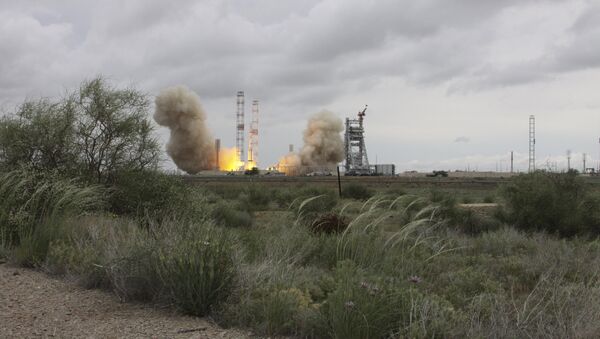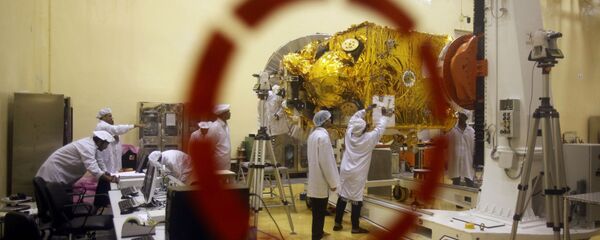"[Mexico] is interested in further strengthening of [bilateral] relations, especially in the areas related to high technology, where both Mexican and Russian scientists have opportunities for cooperation," Moreno said, stressing that technical malfunctions could occur at any time and were not an obstacle to cooperation.
On May 16, 2015, Proton-M launch vehicle, its Breeze-M booster and MexSat-1 satellite lifted off from the Baikonur Cosmodrome but the engine shut off abruptly 498 seconds after the launch and 60 seconds before the satellite’s separation from the rocket. The third stage, the booster and the spacecraft were incinerated during reentry. The accident was attributed to the malfunctioning of the third-stage's steering engine, which had been affected by excessive vibrations caused by substantial heat. A defective rotor in a turbine-pump unit was named the main "culprit" in the incident.
The Proton-M is the largest carrier rocket in Russia's fleet of space launch vehicles. The rocket has lifted dozens of Russian and foreign satellites into orbit since it was first commissioned into service in 2001. On June 27, Russia's Roscosmos State Space Corporation press service said that the first launch of the new modification of the Proton-M carrier rocket would be conducted in 2019.



